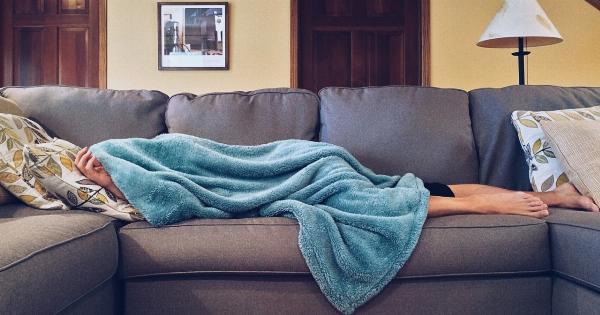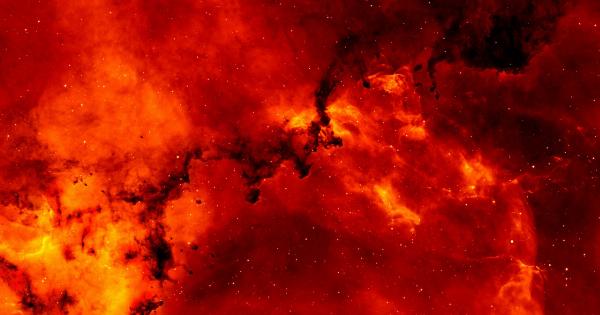Do you ever wonder when your body burns the most calories throughout the day? The answer may surprise you.
Calorie burn is not a constant process; it fluctuates depending on various factors, including your daily activities, metabolism, and even the time of day. Understanding the hour-by-hour calorie burn can give you valuable insights into optimizing your workouts and managing your weight effectively. Let’s dive into the details and discover when we burn the most calories throughout the day.
1. Morning Metabolism Boost
As soon as you wake up, your body starts to burn calories to get your systems up and running.
This initial boost in metabolism, known as the “resting metabolic rate,” is responsible for the majority of calorie burn that occurs while you are at rest. During this time, your body is working to regulate essential bodily functions like breathing, digestion, and circulation. Your morning metabolism boost usually lasts until around two hours after waking up.
2. Active Mornings
As the day progresses, so does your activity level. Many people engage in physical activities during the morning hours, such as walking, jogging, or hitting the gym before work.
These activities can significantly contribute to calorie burn, as they require energy and stimulate your muscles. The intensity and duration of your morning exercise sessions play a crucial role in determining the total calories burned during this period.
3. Midday Slump
Have you ever felt a slump in your energy levels during the midday? This period is notorious for decreased productivity and an inclination to reach for an energy boost like coffee or sugary snacks.
However, this slump in energy also coincides with a decline in calorie burn. As your body starts to wind down, your metabolism gradually slows, resulting in reduced calorie burn compared to the earlier parts of the day.
4. Post-Lunch Calories
After a midday meal, your body shifts its focus to digestion. As a result, calorie burn increases slightly during the post-lunch period.
The specific amount of calorie burn varies from person to person, depending on factors such as the size and composition of the meal. However, keep in mind that this increase is not substantial and should not be relied upon as a primary means of calorie burning for weight loss.
5. Afternoon Activity
The late afternoon hours are often marked by an increase in physical activity, especially for those who have active jobs.
Whether you’re running errands, playing sports, or simply engaging in household chores, these activities contribute to calorie burn. However, it’s important to note that the intensity and duration of these activities play a significant role in determining the overall calorie burn.
Higher intensity workouts, such as interval training or weightlifting, can elevate your calorie burn even more.
6. Evening Workout Benefits
Many individuals find it more convenient to exercise in the evenings. If this sounds like you, there’s good news – evening workouts can be quite advantageous when it comes to calorie burn.
Studies suggest that your body’s internal clock influences its response to exercise, with the early evening being the time when most people experience peak performance. This means that you can potentially burn more calories during an evening workout compared to other times of the day. Nonetheless, it’s essential to find a workout time that fits with your schedule and allows for consistency.
7. Nighttime Calorie Burn
Contrary to popular belief, your body doesn’t shut down and stop burning calories as soon as you go to bed. While you’re asleep, your body continues to perform vital functions, such as breathing and cell repair, all of which require energy.
However, it’s important to note that the calorie burn during sleep is generally lower compared to the other parts of the day. Nevertheless, a good night’s rest is crucial for overall health and can indirectly impact your calorie burn and weight management.
8. The Impact of Muscle Mass
When discussing hour-by-hour calorie burn, it’s crucial to mention the significance of muscle mass. Muscle is more metabolically active than fat, meaning it burns more calories at rest.
Therefore, individuals with higher muscle mass tend to have a higher resting metabolic rate and, consequently, burn more calories throughout the day. Engaging in strength training exercises regularly can help increase muscle mass, boosting your calorie burn potential.
9. Factors That Influence Hour-by-hour Calorie Burn
Various factors can affect calorie burn throughout the day. These include genetics, age, sex, and overall health. Additionally, certain medical conditions or medications may impact your metabolism and calorie burn.
It is crucial to maintain a holistic approach to health and consider these factors when assessing your personal hourly calorie burn.
10. Optimizing Calorie Burn
No matter what time of day it is, there are several strategies you can employ to optimize your calorie burn. Incorporating regular physical activity, both aerobic exercises and strength training, into your routine is key.
Additionally, maintaining a well-balanced diet that supports your energy needs and keeps you fueled is crucial. Consistency in your exercise habits, sleep patterns, and overall lifestyle is vital for achieving long-term success in managing your weight and optimizing calorie burn.

























